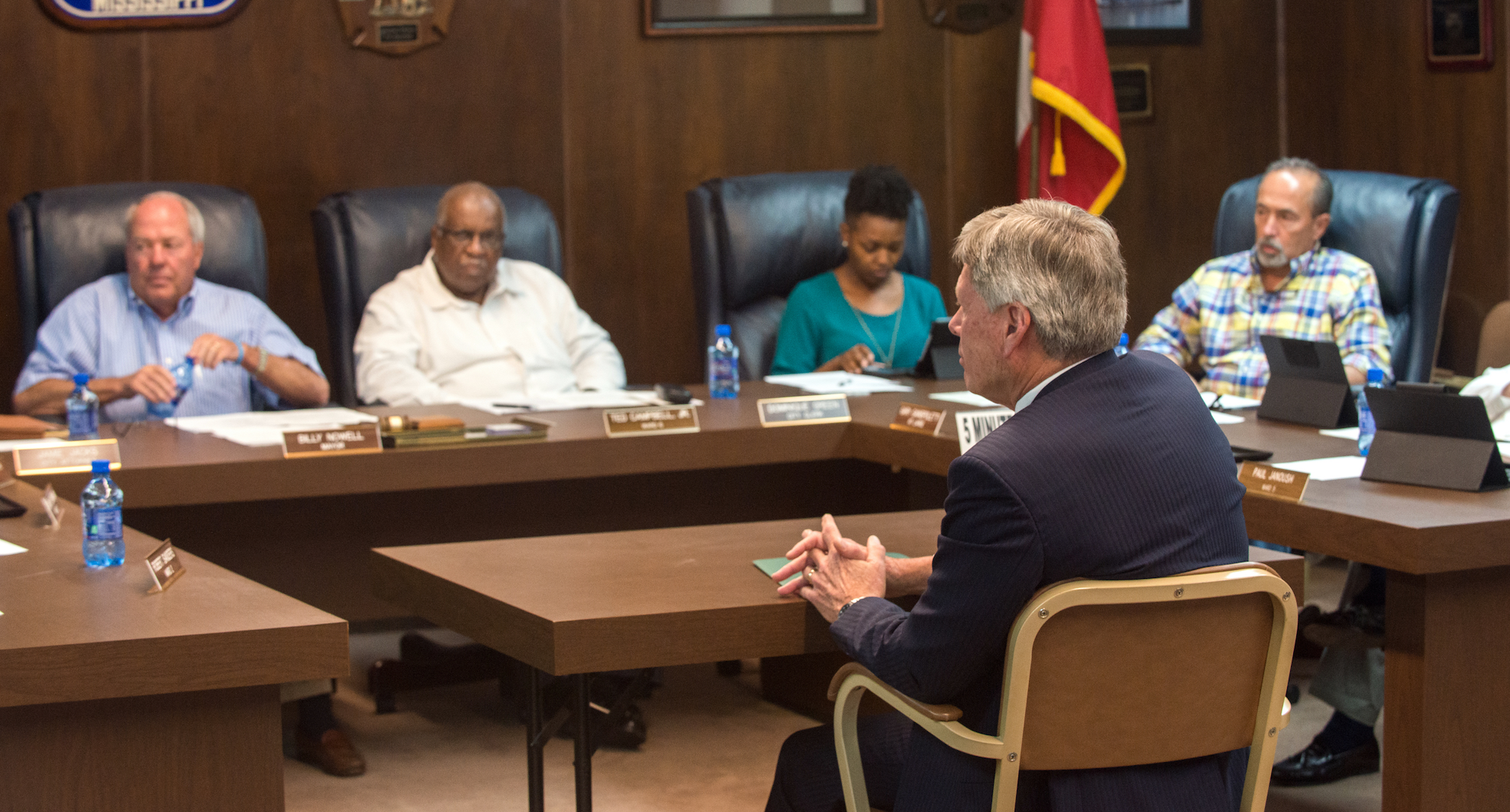
Delta State University President William N. LaForge gave a campus update to the Bolivar County Board of Supervisors and the Cleveland Board of Aldermen this past week.
The update included topics such as the strong relationship between the university and the city and county, as well as information on enrollment, the university budget, a tuition increase, university programs and initiatives, and measures being put in place to offset more than $2 million in state budget cuts.
LaForge said he is proud of the cooperative nature of the university’s “town-gown relations.”
“We depend on each other,” LaForge said. “Cleveland provides a home for the DSU family, and the university offers Cleveland the benefits of an educational, cultural, intellectual, musical, athletic, and artistic center.”
He added Delta State helps drive the economy of Cleveland and the area.
“Most of our 545 faculty and staff live in Cleveland, pay taxes, buy groceries, clothes, and gasoline, and enjoy the public services, dining, and entertainment Cleveland offers,” he said.
In addition, Delta State students spend as much as $10,000 a year per student for off-campus purchases, including rental housing.
As part of the update, LaForge also explained the status of the university budget and several measures the university has put in place as a result of state budget cuts over the past fiscal year.
One change to offset the narrowing budget is a seven percent tuition increase, amounting to a $441 increase in yearly tuition for students. Even with the increase, Delta State remains a bargain with a tuition total that is higher than only Mississippi University for Women and Mississippi Valley State University among the state’s public universities.
In April, Delta State announced it will be closing the Derrall Foreman Golf Course on June 30, which will amount to an annual savings of nearly $250,000. The course will remain unused until decisions are made regarding the repurposing of the property.
“In these tight budget times, we can no longer afford to operate a woefully underutilized enterprise that really is not in line with our academic mission,” LaForge said. “Unfortunately, the cost is just too much to justify … I would encourage you to withhold judgment and premature concern until we actually focus on a project; for example, issues such as taxation, flooding and drainage, and zoning will all be addressed at the appropriate time.”
In addition, Delta State will cease operating the Coahoma County Higher Education Center in Clarksdale, effective June 30. Coahoma Community College, which utilizes the facility in partnership with Delta State, is working to determine if they can continue to operate the CCHEC for an interim period.
The university has also enacted a hiring and spending freeze, is using some reserve funds, will be shutting down some buildings over the summer to save on utilities, and is moving to a four-day work week over the summer.
Additionally, the university is instituting a five percent fee on designated funds, a subset of the general fund. The fee will be assessed in January each year based on the 12-month average balance of the fund.
Other items include a reduction in the Athletics operation budget, re-budgeting of Capital Projects expenditures, a reduction in the E&G Contingency Budget, and an increase in Foundation support.
LaForge announced Delta State will also boost its efforts for a private funding campaign to secure new resources for student success and enrichment, academic excellence, and cultural and social heritage.
In closing, LaForge pointed to Delta State alumni who hold positions of leadership not only locally but nationally.
“Delta State alumni lead and manage the likes of UPS, Charles Schwab, the Casey Family Foundation, our local schools, our Chamber of Commerce, local churches, numerous local businesses, this university, our county, and this city – and that should be a great source of pride for us all,” he said.

